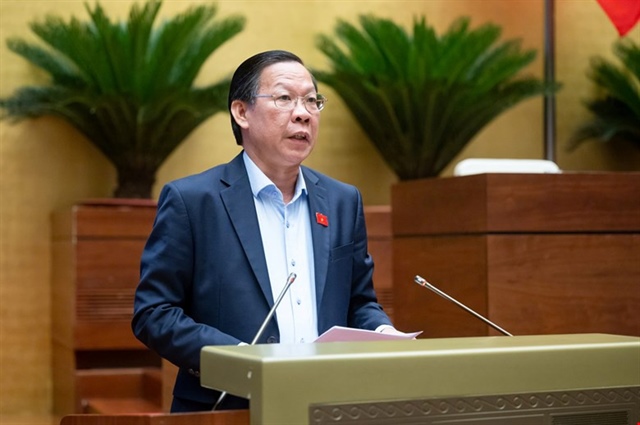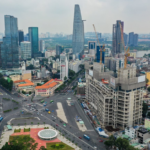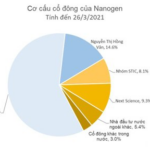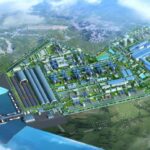Are State-Owned Enterprises Allowed to Operate in Real Estate?
This morning, Phan Van Mai, Chairman of the National Assembly’s Economic and Financial Committee, presented a report to the National Assembly on the absorption, explanation, and editing of the draft Law on Management and Investment of State Capital in Enterprises.
The National Assembly Standing Committee (NASC) assessed that the draft has institutionalized the directive view of Resolution No. 12-NQ/TW, which states, “State-owned enterprises operate according to market mechanisms, with economic efficiency as the main criterion, autonomy, self-responsibility, and fair competition with enterprises of other economic components in accordance with the law.”
Some opinions state that the regulation prohibiting enterprises from operating in real estate (Article 20) is inappropriate.
Mr. Mai said that the draft law does not prohibit state-owned enterprises from operating in real estate. However, this activity must be reflected in the Company Charter and approved by the state capital representative to ensure that the enterprise complies with the industry orientation and limits investment outside the main field.
 Mr. Phan Van Mai, Chairman of the National Assembly’s Economic and Financial Committee. Photo: National Assembly |
Mr. Mai argued that not specifying investment restrictions in the draft law ensures compliance with the Constitution, Civil Code, and Enterprise Law.
Regarding the regulation on leasing or exploiting real estate in enterprises, at point d, Clause 2, Article 20 of the draft, the Members’ Council (HĐTV) or the company chairman decides to lease, mortgage, pledge assets, and sell fixed assets with an investment capital of no more than 50% of the owner’s equity or not more than 50% of the owner’s investment capital. in case the enterprise loses, is recorded on the enterprise’s quarterly or annual financial statements at the time closest to the time of the project decision but not exceeding the specific level prescribed by the Government.
In case the value of the asset for lease, mortgage, pledge, or sale of fixed assets is greater than this amount, the HĐTV or the company chairman shall decide on the investment after reporting to the state capital representative for an opinion on the purpose, investment capital, source of capital, and time of implementation of the investment project.
Discussing the hall, regarding the regulation on post-tax deduction, delegate Trinh Xuan An (Dong Nai) proposed a special mechanism to allow specific enterprises to retain all post-tax profits, especially those enterprises implementing key projects that require large capital.
Mr. An also proposed not applying the criteria for evaluating, preserving, and developing capital to enterprises performing research and production tasks to serve national defense and security missions.
However, to clarify some content, Minister of Finance Nguyen Van Thang (representing the drafting agency) said: “To hold the responsibility of the head, the state capital representative in the enterprise, the draft law stipulates that the evaluation results are the basis for considering the appointment, introduction, hiring, re-appointment, approval of resignation, dismissal, and termination of the contract.”
At the same time, the evaluation results are the basis for spending on welfare for employees in the enterprise and rewarding in accordance with regulations.”
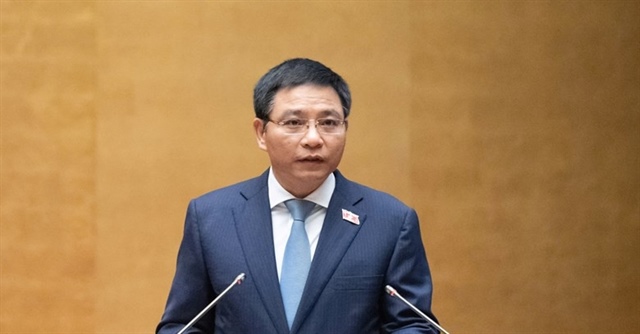
Minister of Finance Nguyen Van Thang. Photo: National Assembly |
The State Only Manages the Contributed Capital in Enterprises
Speaking to contribute to the draft, Delegate Phan Duc Hieu, a permanent member of the Economic and Financial Committee, cited legal regulations that regardless of whether the investor has contributed money/assets to the enterprise, they must transfer the ownership of that money/assets to the enterprise.
At that time, the investor will only own the enterprise’s shares. If they want to sell the assets contributed to the enterprise, the investor can only sell the contributed capital in the enterprise.
“The State does not own assets or capital after contributing capital to the enterprise but only owns shares representing the contributed capital,” said Mr. Hieu, suggesting adding the concept of state capital invested in the enterprise, clearly identifying the state’s shareholding ratio in the enterprise.
Regarding the form of investment of state capital in enterprises, the new draft only stipulates the case where the State buys shares or contributes capital together with other investors in an operating enterprise, and there is no regulation on the case where the State contributes capital together with other investors to establish a completely new enterprise. Therefore, Mr. Hieu proposed adding regulations on this case.
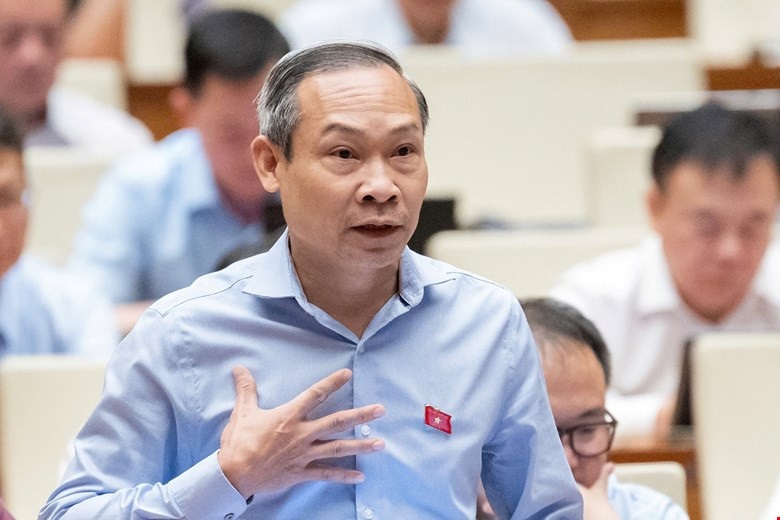 Delegate Phan Duc Hieu, permanent member of the National Assembly’s Economic and Financial Committee. Photo: National Assembly
|
Article 20 of the draft regulates the investment activities of enterprises. However, the activities of the enterprise also include production and business activities and the purchase and sale of goods.
“So, do all production and business activities of the enterprise have to be established as investment projects? This will be very difficult for enterprises that have dozens or hundreds of transactions every day. Therefore, it is necessary to clarify which activities must be established as investment projects. I propose to review the draft carefully to avoid generating unnecessary procedures,” said Mr. Hieu.
In response, Minister Thang said that the fundamental change of the law is that the State exercises rights and obligations corresponding to the proportion of contributed capital in the enterprise, equal to other investors, and does not directly intervene in the production and business activities of the enterprise.
Accordingly, instead of managing enterprises with state-owned capital, the new law only manages the state’s capital contribution to the enterprise.
“Once the capital is contributed, the State must respect the enterprise, and that contributed capital is the property of the enterprise. The law also enhances the autonomy and self-responsibility of enterprises and fair competition,” Minister Thang affirmed.
|
Delegate Nguyen Thi Thu Ha (Quang Ninh) proposed separating into two types of enterprises: Enterprises for the development of science and technology – technology innovation – national digital transformation applying high technology; Enterprises investing in large-scale construction of important infrastructure works for the country, creating a driving force for the rapid development of industries, fields, and the economy. Meanwhile, Delegate Le Thi Thanh Lam (Hau Giang) pointed out the reality that some enterprises have not seriously implemented information disclosure, which reduces the effectiveness of social supervision of SOEs, especially enterprises providing essential services to the people. Therefore, the delegate proposed that the drafting agency supplement the regulations on the information disclosure obligations of enterprises. |
Tuân Nguyễn
The Japanese Company Expanding its Horizons: A $132 Million Investment in Hung Yen to Quadruple Production Capacity
“Nitto Vietnam Limited (a wholly-owned Japanese company) received an investment certificate for a $132 million project in Hung Yen province in September 2023. In a recent development, the company has been granted approval to increase its investment capital to $160 million, marking a substantial increment of $28 million.”
“Billionaire Pham Nhat Vuong’s VINSPEED Registers to Invest in the High-Speed North-South Railway Project”
The project, with its completion envisioned for the year 2030, lays the foundation for a thriving railway industry and serves as a catalyst for new growth and development in the region.
“US-Vietnam Trade Agreement: A Mutually Beneficial Partnership”
On May 13, Prime Minister Pham Minh Chinh met with representatives of the American business community investing and operating in Vietnam. The purpose of this meeting was to listen to and address any challenges they may face, as well as to discuss proposals to enhance Vietnam-US investment and business cooperation.

